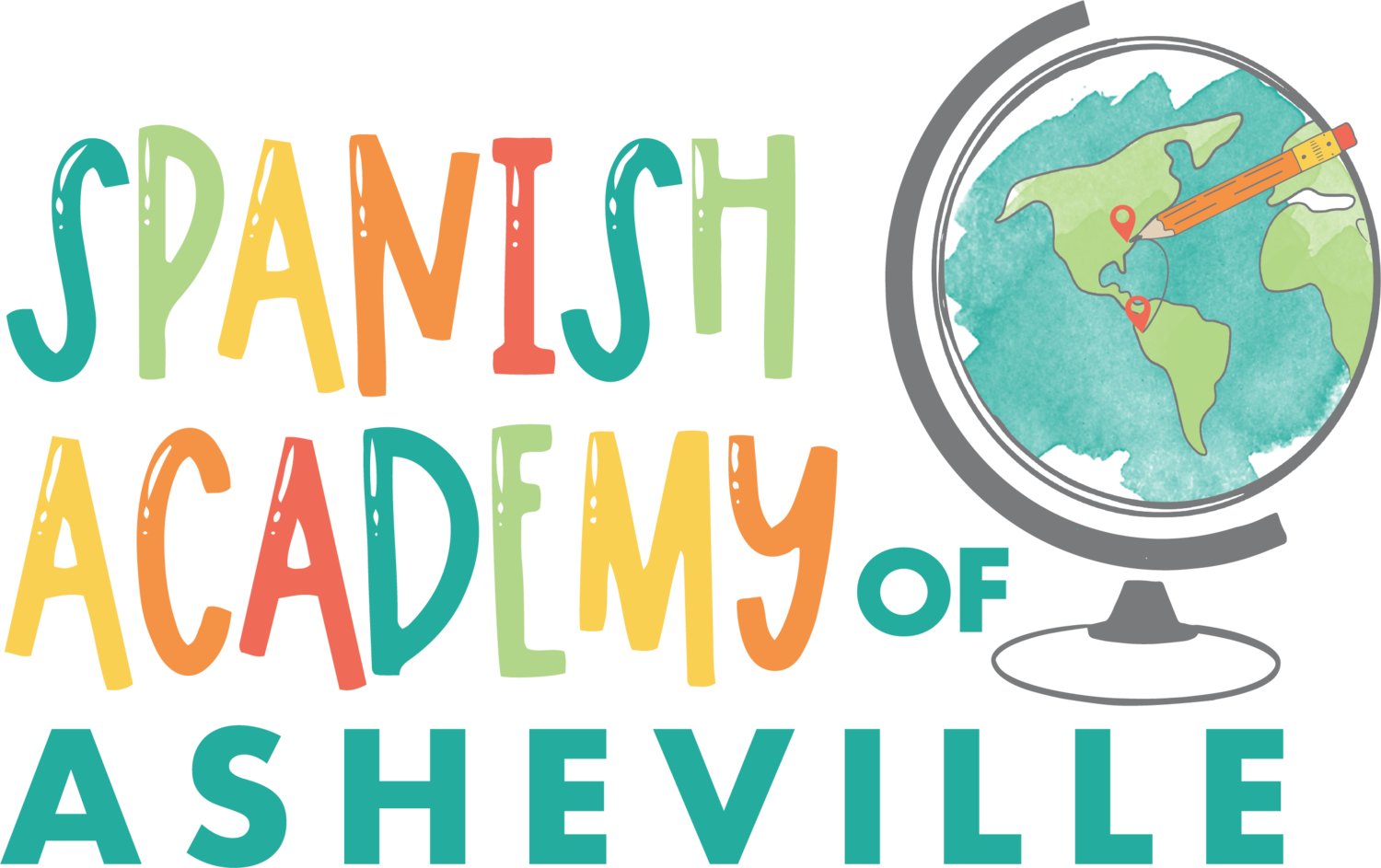Frequently Asked Questions
When do you expect to start?
We expect to open for the school year 2022-23. The building is currently under renovations, construction could take longer than expected. Thank you for your patience and understanding! We will keep you updated via email - if you would like to be added to the email list or our waitlist, please contact us.
What is your program?
Early Morning Program 7:15 am - 8:30 am
Morning Program 8:30 am - 1:00 pm
Full Day Program 8:30 am - 2:45 pm
Extended Program 2:45pm - 5:30 pm
How many days a week can I enroll my child?
You can enroll your child for 3 days, 4 days, or 5 days a week in all programs described above.
Will you also offer summer programming?
We would love to offer summer programs, however it will depend on children’s enrollment and teacher's ratios. If you’re interested in summer programming, please contact us to let us know your interest.
Why school uniforms?
The student dress code at Spanish Academy of Asheville is one that helps create an environment of respect and dignity. Student dress exemplifies students’ respect for themselves, their classmates, and learning. When everyone is wearing the same thing, students can focus on essential issues like academics.
How long will it take my child to learn a second language?
While individual children vary, it typically takes students from 1-3 years to acquire social language (the language of the playground) and at least five years or more to acquire academic language (the language of school). Students encountering a second language for the first time may experience a "silent period" that lasts anywhere from one day to six months or more. During this time, they are acquiring receptive understanding, and should not be forced to speak. Even as they develop proficiency, children may be reluctant to "perform" in their second language for adults at home.
How will the teacher help my child learn and understand Spanish?
The best way to acquire a second language is through meaningful and authentic experiences. Academic content instruction provides this meaningful context, and forms a strong basis for the power of dual language education. Your child's teacher will use a variety of strategies to help students understand oral and written language without the need of translation. Translating, or switching from one language to the other during instruction, is not helpful because students tend to "wait" to hear the instruction in their stronger language. This impedes opportunities to acquire the second language. Therefore teachers and visitors to the classroom are strongly encouraged to adhere to the target language during instructional time.
Help! I don't speak Spanish! How can I support my child?
You can help your child by:
Encouraging friendships with students who speak the other language.
Understanding it takes time to learn a second language. Be patient, and encourage your child to persist.
Asking your child to explain what he or she is learning and doing. Your child should do this in the home language.
Developing a working relationship with your child's teacher.
Providing a quiet work space for your child so that he/she can work without outside interruptions.
Reading and speaking to your child frequently in your home language.
Some parents may be interested in learning the second language. This is great, and shows your child that you value language learning. However, parents are not expected to model the other language if they are not yet proficient in it. Children will benefit more when their parents talk to them in their stronger language. This will develop a strong foundation in the home language, thereby preparing them to acquire their second language.
What if my child encounters difficulty learning Spanish?
Parents will wonder if they should withdraw their child who is struggling. While every case is different, students who participate all the way through are usually glad they stuck with it! If you have concerns about possible learning issues beyond the expected challenges associated with learning a second language, it is very important to work with your child's teacher and administrators to explore the need for additional support.
We speak a language other than Spanish or English at home. Can our child benefit?
Yes! The Spanish Academy of Asheville is a great place for students from all language backgrounds, because every teacher has been trained to use strategies that support second (or third) language learning.
What should I expect at a Parent-Teacher conference?
Just as in any other parent-teacher conference, you will learn about your child's progress in each subject area. In addition, you can ask about your child's progress in their second language. You can help the teacher by sharing information about anything going on at home that may affect your child's learning (such as a new baby, a divorce or family health issues). Make a list of questions to ask the teacher before you go. For example:
What are my child's strengths and weaknesses?
Is my child making progress in Spanish? Does s/he enjoy learning Spanish?
Does my child hand homework in on time?
Does my child participate in class?
Does my child seem happy at school?
What can I do at home to help?
Which elementary schools in Buncombe County Schools will benefit my child?
All six Buncombe County School districts have at least one elementary school with a Dual Language Spanish Immersion program. The schools that have a dual language program starting from kindergarten are:
Avery's Creek Elementary
Candler Elementary
Glen Arden Elementary
Koontz Intermediate
North Buncombe Elementary
Oakley Elementary
W.D. Williams Elementary
West Buncombe Elementary
